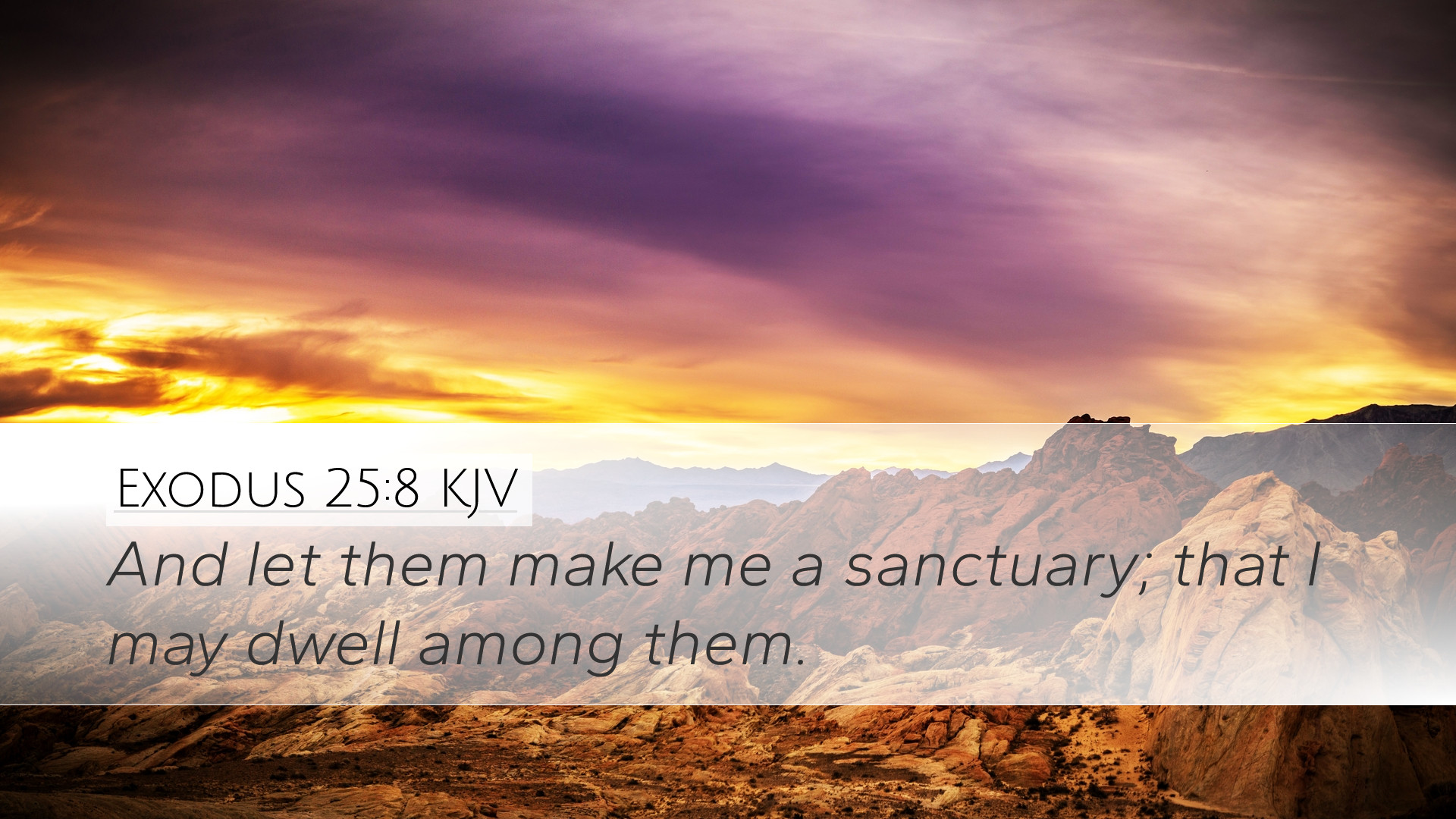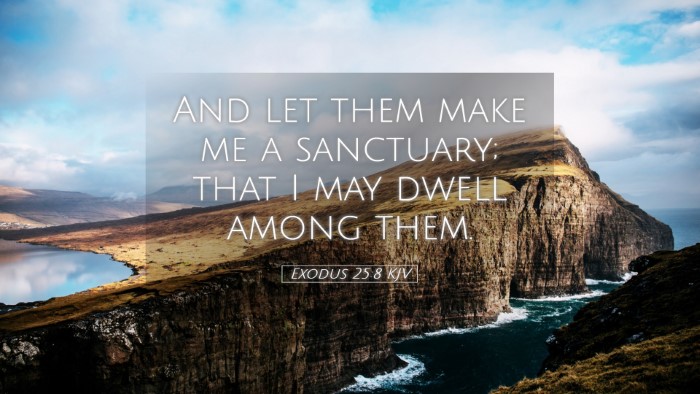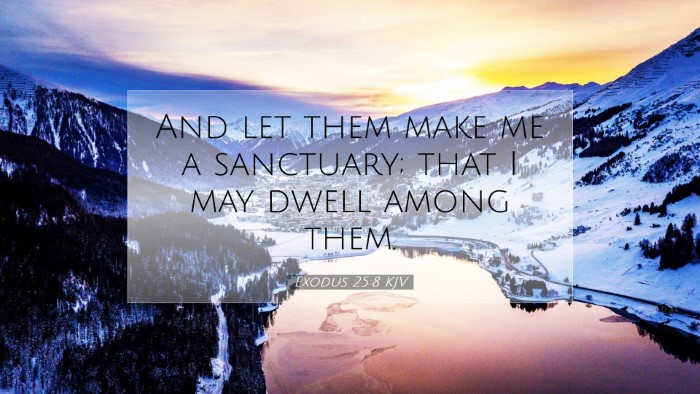Exodus 25:8 - Commentary
Exodus 25:8 states, "And let them make me a sanctuary; that I may dwell among them." This verse is a pivotal point in the narrative of the Israelites’ journey, reflecting both God's desire to dwell among His people and the nature of true worship and communion with Him. The following commentary draws insights from prominent public domain sources such as Matthew Henry, Albert Barnes, and Adam Clarke, summarizing their understanding of this significant verse.
God’s Desire for Relationship
Henry emphasizes the profound truth that God desires to be with His people. The command to construct a sanctuary signifies not only an intent for God to dwell on earth but also underscores His relational character. God is not a distant deity; He longs for fellowship with His creation. This reflects the Divine intention from the very beginning, echoing the communion enjoyed in the Garden of Eden.
The Sanctuary as a Symbol
According to Barnes, the sanctuary serves as a visible manifestation of God's presence. The term “sanctuary” suggests a hallowed place, set apart for the meeting of God and man. By instructing the Israelites to build this sanctuary, God is initiating a physical space for worship, a reflection of His holiness. It symbolizes the distinction of His presence among the people compared to the idolatry and spiritual barrenness of surrounding nations.
Constructing the Sanctuary
- Divine Instruction: Clarke points out that the instructions for the construction were given directly by God, highlighting His authority and specificity.
- Materials for the Sanctuary: The materials required (gold, silver, and precious fabrics) indicate the value God places on His dwelling and, by extension, on relationship with humanity.
- Community Participation: The call for community involvement in this endeavor illustrates that worship is both an individual and collective activity.
Theological Implications
Reflecting on this verse, theologians argue that God's request for a sanctuary reveals several essential doctrines.
- The Holiness of God: The sanctuary represents God's holiness and the necessity of approaching Him with reverence. God is transcendent yet immanent, holy yet inviting.
- God’s Presence: The phrase “dwell among them” underscores God’s desire to manifest His presence among His people—this is fulfillment of His promise to be their God.
- Implications for Worship: Worship is shaped by the understanding of God’s character and His desire for relationship. The sanctuary serves as a model for how the community approaches worship.
Historical Context
The historical context of Exodus provides deeper insight into this command. The Israelites, having just been delivered from slavery in Egypt, were experiencing a profound transformation. As they journeyed through the desert, God’s command to build a sanctuary acted as both a reassurance of His presence and a guide for the community's identity as His chosen people.
Practical Application for Today
For pastors, students, and scholars today, Exodus 25:8 serves as a powerful reminder of God’s ongoing desire for relationship and the sacredness of worship.
- Emphasizing Community Worship: The call to build a sanctuary can inspire contemporary leaders to foster environments where communal worship reflects God’s presence.
- Holiness as a Standard: Understanding God’s holiness urges believers to maintain purity and reverence in worship practices.
- Presence of God: The assurance that God desires to dwell among us is a source of comfort and should drive personal and corporate worship practices.
Conclusion
Exodus 25:8 encapsulates profound truths about God’s character, human community, and the nature of worship. It calls us to acknowledge the sanctity of our gatherings and the importance of creating spaces—both physical and spiritual—where we can encounter God's presence. The insights provided by Henry, Barnes, and Clarke enrich our understanding and encourage deeper exploration of how we can live in response to this divine invitation.


